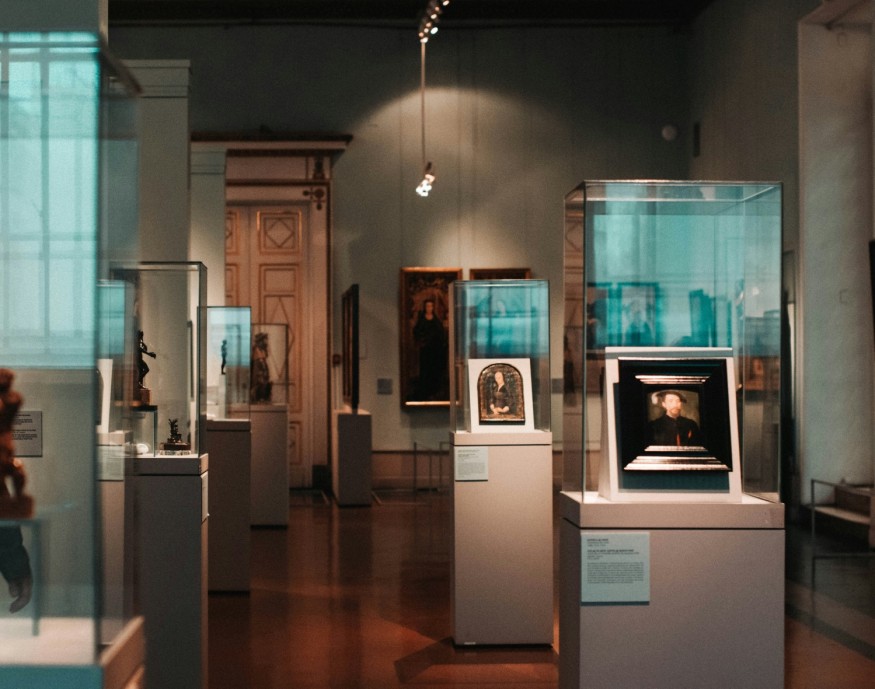Artwork Bought Online for $1,000 Turns Out to Be $13 Million Degas Masterpiece

In the realm of online bargains, an astute buyer stumbled upon what could be described as the deal of a lifetime in 2021. Initially labeled as a "fake" Degas, a pastel drawing caught the attention of a savvy thrifter. Upon closer examination with the assistance of expert Michel Schulman, it was determined that this masterpiece was likely éloge du maquillage (In praise of cosmetics) (1876), a renowned brothel scene painted by Edgar Degas, which had been missing for several decades.
Lost Degas Masterpiece Emerges from Obscurity
This exciting discovery was first announced to the public on May 28 when the painting was first revealed to the public at the Institute Français in Madrid. The delightful find was first revealed by El Punt Avui - a Catalan daily newspaper. Reporting the story of this incredible discovery began with an unnamed Barcelona buyer competing with several other bidders available on Todocolección auction site. At first, the artwork was offered for €1 ($1); however, the startup company later bought it for €926 ($1,000).
To the seller who had bought it from a dusty old collection in Sabadell, Catalonia and who inherited the painting, it surely must have looked like an extra form of blessing. Although the seller signed the piece as Degàs, he had his doubts over its genuineness that is why he decided to provide a list of provenances that proved that the artwork's origins date back to 1940 when his ancestor Joan Llonch Salas, a collector of the Banco Sabadell of Sabadell, purchased the painting.
Valuation and Speculation
Having been recently proved to be by Degas, experts believe that the Impressionist piece of art created using pastel on a cardboard is about 19 by 24. 5 inches, it could be worth anything between €7 million and €8 million, which comes to around $8 million. Some sources put it as high as €12 million ($13 million), with information provided to El Nacional.
Discovering this forgotten master piece's biography, Schulman, in cooperation with art historians, Judith Urbano and álvaro Pascual along with the Consulters Rey collaborator Juan Arjona Rey of Consultores Rey, set a course to investigate. The team was able to ascertain using X-ray testing, pigment analysis and photographs among others that the piece in question was indeed completed in the late 19th century. In the process of the authentication, the author was also concerned with checking whether the author's signature is a part of the artwork or painted afterward.
Also Read: 10 Women Surrealists Who Redefined Creativity, Art and Reality
Schulman, renowned for cataloging 1,750 works by Degas, noted that In Praise of Makeup was connected to another piece by the French painter, Le client sérieux (The Serious Client). Explaining Degas's artistic process, Schulman highlighted how the artist often drew inspiration from previous works or characters.
Testament to Resilience
The research journey was facilitated by several labels affixed to the artwork's back, providing crucial insights into its provenance. Tracing its journey, the artwork was initially acquired by artist Julián Bastinos from Degas himself in Paris in 1887. Subsequently, it traveled to Cairo in the 1910s and was later repatriated to Barcelona. During the tumultuous period of the Spanish Civil War, the pastel, along with other confiscated artworks, found refuge in the monastery of Pedralbes under the guardianship of Francoist republicans.
With a label from the Francoist Ministry of National Education attesting to its recovery in 1939, the pastel eventually made its way back to the Bastinos family and was subsequently sold to Llonch in 1940. Last publicly exhibited in 1952, the artwork now stands as a testament to the resilience of artistic heritage and the enduring allure of Degas's oeuvre.
Related Article: Performance Artist Faces Charges After Vandalizing Courbet's 'Origine du Monde' with #MeToo Slogan
From Digital Models to 3D-Printed Homes: Jaspreet Kaur Lall Explains How the Innovation Changes the Construction Industry

Future Belongs to Green Construction: Sampath Kumar Paspunoori Explains One of the Key Trends in the Construction Industry

Kamala Harris' Campaign Ad Uses Iconic Visuals from Carrie Mae Weems to Connect with Voters

Historic Ancient Roman Ruins in Baalbek Remain Strong After Israeli Air Strikes; Locals Seek Cultural Protection

4 Ways to Honor Departed Loved Ones in Your Home Design











